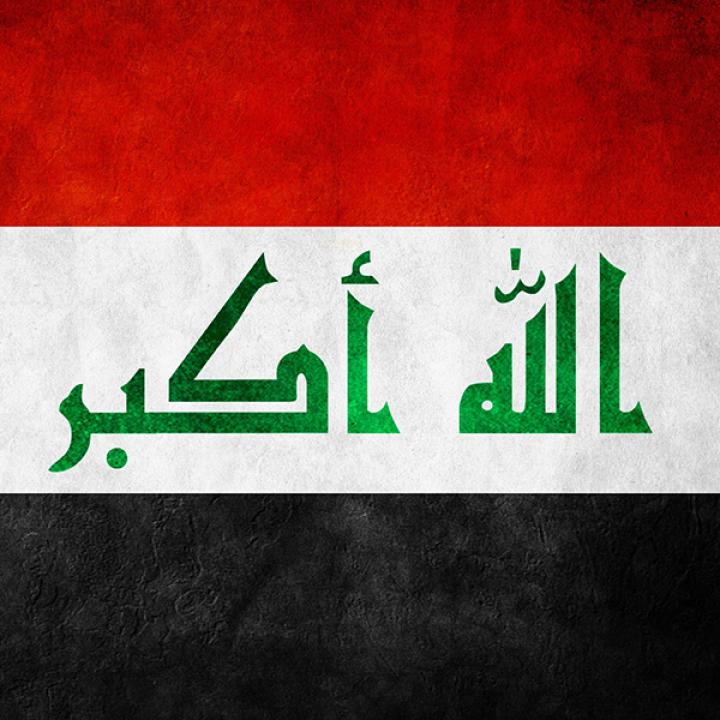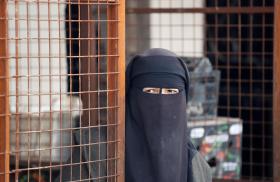
- Policy Analysis
- Fikra Forum
How Iraqis View Life after the Fall of Saddam—Twenty Years Ago and Today

Two decades after the fall of Saddam Hussein, widespread frustration with the current state of Iraq is leading increasing numbers to express a negative view of life in the post-Saddam era.
Like all Iraqis at this time twenty years ago, I was completing my family’s final preparations to face the oncoming war after it became clear that hopes of avoiding it were unrealistic dreams. I took my family to live in a more secure area after stocking up on food and water. Warning sirens sounded, the electricity cut off, and the sound of explosions began to rock the new home we had chosen. The skies over Baghdad lit up with deadly fireworks. As my children’s terrified voices grew louder, my main concern was to calm their fears and make them believe my lie that everything would be okay.
It only took three weeks for us to be certain that Iraq had been occupied and that a new chapter in our lives had begun. But the apparent Iraqi response to that reality was more puzzling. According to the news I received on a small transistor radio—my outlet to the world—Iraqis were overjoyed at the downfall of Saddam’s regime and cheering on a new era of democracy, freedom, and prosperity that would make Iraq the 51st American state.
The reports made me wonder: why was I not as happy as the rest of the Iraqis referenced on the radio news? Was I different, or was there another side to public opinion that the radio did not mention? By chance, I was reading a book at that time about the influence of public opinion and how to measure it. It suggested to me that if I were able to ask Iraqis their opinions about what happened, I would be able to resolve the contradiction I felt between the outpouring of news about Iraqis’ delight over the invasion and my own pessimistic views about the events and likely future. Subsequently, I convinced my friends and some of my students to conduct the first public opinion poll, focusing just on Baghdad. Just three weeks after the invasion, I had the answer to my question, but it only added to my confusion and concern.
According to the results, there was a clear divide in opinion among Baghdadis—49% of them believed that what had happened was a good thing for them, and 47% agreed with me that it was bad for them instead. On realizing that attitudes were effectively split down the middle, my confusion increased, along with my passion to learn more about Iraqis’ opinions. I hoped through subsequent polling to ask them what led to this discrepancy in their opinions, to the point where I left my job as a university professor and devoted myself entirely to exploring Iraqi public opinion over the next two decades—during which these views have changed in dramatic and intriguing ways.
The twentieth anniversary of the invasion motivated me to ask Iraqis the same questions I had asked in the initial years after 2003 in order to draw a clearer picture of how Iraqis views have shifted. In February, my research group Al-Mustakella, in cooperation with the British research firm Opinion Research Business (ORB) and the British Broadcasting Corporation (BBC), surveyed a national sample of 3,000 Iraqis in face-to-face interviews, using computer-assisted interviewing (CAPI) and the Probability Proportional to Size (PPS) random sampling method.
Although comparison with the first opinion poll is not statistically accurate, since that poll was taken with a rudimentary methodology and was limited to Baghdad, it is notable that the percentage of Iraqis who say that “the entrance of coalition forces in 2003” was good for them is just 35% today—with most of those respondents who answered positively being Kurds. Among Arabs (Shia and Sunnis), only 29% say that what happened was good. Conversely, two-thirds of Iraqis as a whole believe that what happened in 2003 was bad for them.
Even more revealing were the answers to the question: “Taking everything into account, do you feel things are better for you now under the present political system or do you think things were better for you before, under the previous regime of Saddam Hussein?” When we first asked this question in 2005, 67% of respondents—most of them Kurds and Shia—answered that their lives in 2005 were better than they were during Saddam’s regime, in spite of the unstable security situation at that time. There has since been a major change in public opinion regarding this question.
The percentage of those who now say that their lives are better than they were during the previous regime has fallen to just 31%, while the percentage of those who say that they were better off during the previous regime jumped to 36%. The other third of Iraqis (33%) say they are just as bad off as they were during the previous regime.
What stands out the most in these recent figures is that, contrary to the prevailing impression, the major shift in public opinion did not occur just in one region or one ethno-sectarian group. Although the majority of those who say that their situation was better under the previous regime are Sunnis (48%), 33% of Shia now also say that their situation was better under Saddam—higher than the percentage of Shia who say that they are better off under the current regime (29%). 38% of Shia say that they were just as bad off under the former regime. Even among the Kurds, responses are completely different from when polled in 2005. Although 63% of Kurds say that their lives are better today, more than 20% of them say that their situation was better under the previous regime, and 16% say that they are just as bad off as they were during the previous regime.
Here, we must highlight an important point: these results do not necessarily reflect nostalgia for the former regime as much as a rejection of the current regime and the overall situation in Iraq today. As evidence of this, the majority of those, whether Kurds or Shia, who say that their situation was better during the former regime are less than 30 years old, i.e., they were not alive or were not aware of the situation prior to 2003. Thus their responses do not realistically reflect their opinion of the former regime as much as their discontent with the current situation.
The current figures indicate Iraqis’ clear frustration and disappointment with the regime and mode of governance in Iraq. Only 40% of those surveyed say that the situation in Iraq is better than it was under the former regime, compared to 59% who say it is worse. These numbers reflect the current political crisis in Iraq and the need to review all the failures that have made many Iraqis nostalgic for the past—not out of love for what came before, but out of spite for the current regime. When interviewed by a TV reporter, an older Iraqi woman said that “the sins of the current regime make the former regime look blameless.” This is the best summary of what has happened in Iraq—an attitude clearly reflected in this latest opinion poll.



